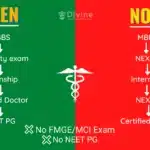Pursuing a medical education in the Caribbean offers unique opportunities and challenges. This article provides an in-depth analysis of the best medical schools in the region, examining the educational landscape, financial considerations, clinical experiences, and strategic academic advantages. It also includes a case study of the American Canadian School of Medicine (ACSOM), highlighting its non-profit model and contributions to medical education excellence in tropical settings.
Key Takeaways
- Caribbean medical schools offer diverse programs and provide an alternative route to becoming a doctor, with a focus on USMLE preparation and high residency placement rates.
- Financial planning is crucial for Caribbean medical studies, with costs varying widely and opportunities for scholarships and financial aid.
- Clinical experiences in the Caribbean often include rotations in prestigious U.S. and U.K. hospitals, enhancing students’ global medical exposure.
- Strategic academic advantages include accelerated programs, bypassing certain standard exams, and dual placement opportunities in the U.S. and U.K.
- ACSOM exemplifies a successful non-profit educational model with state-of-the-art facilities, ECFMG accreditation, and a supportive community.
Understanding the Caribbean Medical Education Landscape

Diversity of Medical Programs
The Caribbean medical education landscape is as diverse as its culture, offering a range of programs that cater to various educational backgrounds and career aspirations. Prospective students can choose from traditional 4-year MD programs to accelerated BS/MD and Premed/MD tracks, each designed to provide a tailored educational experience.
Traditional MD Programs: Typically require a Bachelor’s degree and focus on comprehensive medical education.
Accelerated BS/MD and Premed/MD Tracks: Suitable for high school graduates, these programs combine undergraduate and medical education.
Specialized Training: Some institutions offer specialized programs that focus on certain areas of medicine, providing an in-depth study.
By considering alternative pathways, students can tailor their medical education to align with their career goals and personal circumstances.
The decision to pursue a medical degree in the Caribbean should be informed by careful consideration of the program’s structure, duration, and the specific medical field of interest. It is essential to research each institution’s accreditation, curriculum, and clinical rotation opportunities to ensure alignment with one’s professional objectives.
Admission Criteria and Processes
The journey to a medical career in the Caribbean begins with understanding the admission criteria and processes of your chosen institution. Prospective students must navigate a series of steps, from submitting an application complete with academic transcripts and passport copies to proving English proficiency, if required. A critical component is the eligibility criteria, which often includes a minimum age requirement and educational prerequisites such as a Bachelor’s degree or equivalent credits.
Eligibility Criteria:
- Minimum age of 18 upon arrival
- Bachelor’s degree or at least 90 undergraduate credits
Financial considerations, such as the ability to cover tuition and living expenses, are also examined during the admissions process. Students must be prepared to provide financial documents and obtain a student visa, which involves additional steps like securing medical insurance and other relevant paperwork.
The admission process is a gateway to global education opportunities, and understanding it is essential to your success.
Comparing Caribbean Schools with Global Standards
When considering medical education in the Caribbean, it’s crucial to assess how these institutions measure up against global standards. Caribbean medical schools have made significant strides in aligning their programs with those found in the US and Canada. This alignment is evident in the curriculum, faculty qualifications, and the opportunities for clinical rotations abroad, which are essential for securing residency placements.
Accreditation is a key factor in this comparison. Schools like the American Canadian School of Medicine (ACSOM) boast dual accreditation, ensuring that the education provided is of high quality and globally recognized. The accreditation status of a medical school can greatly influence its graduates’ ability to practice medicine internationally.
- School A: Preliminary ACCM Accreditation
- School B: Recognized by WFME
- School C: Local Government Accreditation
The collective expertise and experience of a global network empower students to navigate the medical profession with confidence and strategic insight.
Ultimately, the choice of a Caribbean medical school should be informed by thorough research into accreditation, curriculum standards, and clinical rotation opportunities. These elements are pivotal in ensuring that the education received is not only comprehensive but also competitive on an international scale.
Financial Planning for Medical Studies in the Caribbean

Program Cost and Budgeting
When embarking on medical studies in the Caribbean, financial planning is a cornerstone of ensuring a feasible educational journey. Tuition fees, while varying across institutions, form the bulk of the expenses, with living costs adding a significant amount to the budget. Here’s a snapshot of the average annual tuition fees for international students:
| Level of Study | Tuition Fee Range (USD) |
|---|---|
| Undergraduate | $8,000 – $40,000 |
| Postgraduate | $10,000 – $60,000 |
| Doctoral | $28,000 – $55,000 |
In addition to tuition, prospective students must consider the cost of living, which includes accommodation, food, transportation, and other personal expenses. Creating a detailed budget that accounts for these costs is essential for managing finances effectively throughout the medical program.
Financial planning for Caribbean medical education involves understanding tuition and living expenses, exploring scholarships, and creating a comprehensive budget for international students.
Securing financial aid, such as scholarships and loans, can provide relief to students facing economic challenges. It is advisable to explore all financial aid options early in the application process, as they can be highly competitive.
Cost Comparison with India and Other Countries
When considering the pursuit of a medical degree in the Caribbean, a critical factor is the cost comparison with India and other countries. Caribbean medical schools offer competitive tuition fees, often lower than those in the US or UK, making them an attractive option for many students. For instance, the cost of an MBBS course in the Caribbean ranges from US$ 3,500 to US$ 4,800 per semester, which can be a more feasible option for those looking to study medicine abroad.
In contrast, studying medicine in India can be highly competitive and expensive, with parents spending a significant portion of their income on education. The cost of medical education in the US, for example, can reach up to a crore per year in tuition fees alone. This stark difference in costs necessitates a thorough financial analysis for students and their families.
While the initial program costs in the Caribbean might appear higher compared to some Indian options, the long-term benefits such as faster routes to becoming a doctor and superior international exposure should be considered.
It is also important to factor in the cost of living, which can vary greatly between countries. Additional expenses such as flights, accommodation, and daily living costs can add up, making it essential to plan comprehensively. Investing in foreign stocks or international equity funds can be a strategic move to counteract currency fluctuations and secure finances in a more stable currency.
Ultimately, the decision to study medicine in the Caribbean versus India or another country should be based on a combination of cost-effectiveness, educational quality, and long-term career goals. Prospective students should conduct detailed research and consult with educational advisors to make an informed decision.
Scholarships and Financial Aid Opportunities
Securing financial aid is a critical step for students aiming to study medicine in the Caribbean. Scholarships and financial aid can significantly reduce the burden of high tuition fees and living expenses. It’s important to start researching early, as many scholarships have strict deadlines and require detailed applications.
Types of Financial Aid Available:
- Need-based scholarships
- Merit-based scholarships
- College-specific scholarships
- Country-specific scholarships
Financial planning is not just about covering costs, but also about exploring opportunities for scholarships and financial aid to ease the burden. By thoroughly estimating the costs and exploring financial aid options, students can take a step closer to realizing their medical education goals in the Caribbean.
Financial constraints are real, but so are scholarships. Many students miss out on available financial aid because they don’t look for it or assume they won’t qualify.
Clinical Experience and Residency Prospects in the Caribbean

USMLE Pass Rates and Guarantees
The United States Medical Licensing Examination (USMLE) is a pivotal step for medical students in the Caribbean aiming to practice in the United States. High USMLE pass rates are often a testament to the quality of a medical school’s program and its ability to prepare students for this challenging set of exams. Caribbean medical schools have developed robust programs that support students through the USMLE preparation process, often resulting in pass rates that are competitive with those of U.S. medical schools.
Caribbean Medical Schools: What You Need to Know
- U.S. Allopathic Schools 1st Time Takers: 92%
- U.S. Osteopathic Schools 1st Time Takers: 82%
- Non-U.S. International Medical Graduates (IMGs): Varies
Some institutions go a step further by offering tuition refund programs for graduates who pass USMLE Steps 1 and 2 but are unable to secure a residency after multiple attempts. This demonstrates a commitment to their graduates’ success beyond the classroom and into their professional careers.
The emphasis on USMLE preparation is not just about passing exams; it’s about ensuring that students are thoroughly equipped for the rigors of medical practice in the U.S. healthcare system.
Importance of US Clinical Rotations
The significance of US clinical rotations in a medical student’s education cannot be overstated. Clinical rotations in the United States offer exposure to advanced medical practices and technologies, providing students with a comprehensive learning experience that is often unmatched elsewhere. These rotations are not just about gaining knowledge; they are about applying it in real-world scenarios, which is crucial for any medical professional.
US clinical rotations are pivotal for several reasons:
- They allow students to work directly with patients, honing their clinical skills and bedside manner.
- Students gain insight into the US healthcare system, including insurance models and electronic health records.
- The opportunity to earn Letters of Recommendation (LORs) from US physicians, which are invaluable for residency applications.
Moreover, clinical rotations can help students understand their weaknesses and strengths, and what they want out of a medical career. Engaging in these rotations often serves as an extended interview for residency programs, allowing students to demonstrate their competence and fit within a program. For international students, this experience is particularly important as it can significantly enhance their residency application’s competitiveness.
The hands-on experience and professional networking provided by US clinical rotations are instrumental in shaping a medical student’s future, laying a solid foundation for a successful career in medicine.
Residency Placement Success Stories
The journey to a successful medical career often culminates in securing a residency placement, a critical step for any medical graduate. Caribbean medical schools have been increasingly recognized for their ability to facilitate this transition, with many students sharing their success stories. One such narrative comes from a graduate who highlights the impressive 93(ish) percent residency placement rate within one year of graduation from a top Caribbean school.
Caribbean medical schools offer various support mechanisms to ensure their graduates are well-prepared for residency applications. These include comprehensive USMLE preparation, clinical rotations in the US, and personalized career counseling. Moreover, some institutions are so confident in their academic programs that they offer tuition refunds for graduates who pass the USMLE steps 1 and 2 but are unable to obtain a residency after three consecutive cycles, showcasing a commitment to their students’ futures.
The emphasis on hands-on clinical experience, coupled with robust academic support, positions Caribbean graduates favorably in the competitive residency placement landscape.
The table below provides a glimpse into the residency success rates of Caribbean medical graduates, reflecting the effectiveness of their educational models:
| School | Residency Placement Rate |
|---|---|
| School A | 93% |
| School B | 88% |
| School C | 90% |
It’s evident that the Caribbean medical education system is not only about imparting knowledge but also about ensuring that students are equipped to navigate the complexities of the medical profession successfully.
Strategic Academic Advantages of Caribbean Medical Schools

Accelerated Pathway to Success
Caribbean medical schools offer an accelerated pathway to success, allowing students to fast-track their medical careers. This approach can save up to three years compared to traditional programs, propelling graduates into the healthcare industry more swiftly.
Cost-Efficient Education:
- Avoid the need for expensive preparatory courses or entrance exams.
- Reduce the overall duration and cost of medical education.
Exceptional ROI:
- Graduates often experience a significant return on investment due to the accelerated entry into the workforce.
By embracing an accelerated program, students can immerse themselves in medical studies earlier and gain clinical experience sooner, which is invaluable for a budding physician.
Focused USMLE Preparation
Caribbean medical schools are increasingly recognized for their strategic preparation programs for the United States Medical Licensing Examination (USMLE). Students are provided with a structured approach to mastering the content and skills necessary for these critical exams. The curriculum is often integrated with USMLE-focused resources, practice exams, and faculty mentorship to ensure a comprehensive understanding and application of medical knowledge.
The preparation timeline typically aligns with the medical school curriculum, offering a seamless transition from theoretical learning to practical application:
- Year 2: Take USMLE Step 1
- Year 3: Clinical rotations and preparation for USMLE Step 2
- Year 4: Take USMLE Step 2
- Residency: Take USMLE Step 3 after the first year
Early and consistent preparation for these exams is essential for success. This approach not only prepares students for the exams but also for their future roles as independent practitioners.
With the focused USMLE preparation provided by Caribbean schools, students are well-positioned to achieve high pass rates, which are crucial for securing competitive residencies. This advantage is particularly beneficial for international students, including those from India, who seek to practice medicine in the United States.
Dual Placement Opportunities
Caribbean medical schools are increasingly recognized for offering dual placement opportunities, allowing graduates to pursue careers in multiple countries. This flexibility is a significant advantage for students aiming to expand their professional horizons. For instance, clinical rotations can be completed in the U.S. or U.K., providing exposure to different healthcare systems and enhancing employability in these countries.
The following list highlights the strategic benefits of dual placement opportunities:
- Access to diverse healthcare environments
- Increased marketability to potential employers
- Flexibility in choosing where to practice medicine
- Cultural competence gained through international exposure
By maximizing opportunities for novel, transformative solutions to emerge, Caribbean medical schools equip students with the skills necessary for a global medical career.
It’s essential for students to understand the implications of dual placements on their career trajectory and to seek one-on-one support for licensure and employment in their chosen countries. The support provided by Caribbean institutions often includes application reviews, personal statement feedback, and mock interviews, which are crucial for securing residency positions.
The Non-Profit Edge: American Canadian School of Medicine (ACSOM) Case Study

ACSOM’s Unique Educational Model
The American Canadian School of Medicine (ACSOM) stands out with its unique educational model that emphasizes a physician-led, small group learning environment. Boldly redefining medical education, ACSOM ensures that students are immersed in clinical experiences from day one, mirroring the responsibilities and challenges of a practicing physician.
- State-of-the-art facilities
- Cutting-edge educational techniques
- Low student-to-faculty ratio
- Supportive community
- Competitive tuition fees
ACSOM’s commitment to affordable and quality education is evident in its tuition fee structure, which is approximately 20% lower than other Caribbean medical schools. This approach not only makes medical education more accessible but also aligns with the school’s non-profit ethos.
By integrating modern instructional practices with a supportive learning environment, ACSOM provides a nurturing ground for future medical professionals.
ECFMG Accreditation and Global Recognition
The American Canadian School of Medicine (ACSOM) stands out with its full accreditation by the Independent Agency for Accreditation and Rating (IAAR) through 2028 and preliminary accreditation from the Accreditation Commission on Colleges of Medicine (ACCM). Both accrediting bodies are recognized by the World Federation of Medical Education (WFME), ensuring that ACSOM’s graduates are eligible to practice medicine in the USA and Canada. This dual accreditation affirms the school’s commitment to meeting rigorous global standards in medical education.
ACSOM’s recognition by the ECFMG allows its graduates to take the USMLE, participate in the NRMP, and pursue residency placements in the United States. The ECFMG certification is crucial for international medical graduates (IMGs) and serves as a testament to the quality of ACSOM’s educational program. Graduates from ACSOM are thus well-positioned to embark on successful medical careers internationally.
ACSOM’s global recognition and accreditation pave the way for its graduates to achieve excellence in the medical field, with the assurance of a curriculum that meets international benchmarks.
State-of-the-Art Facilities and Supportive Community
The American Canadian School of Medicine (ACSOM) prides itself on providing students with an environment that is conducive to learning and professional growth. The campus boasts state-of-the-art facilities, including a comprehensive library, advanced computer labs, and comfortable student lounges. These amenities are designed to support the rigorous demands of medical education and foster a sense of community among students.
Beyond the physical infrastructure, ACSOM’s supportive community plays a pivotal role in student success. The institution emphasizes a low student-to-faculty ratio, ensuring personalized attention and mentorship. This collaborative atmosphere is further enriched by a variety of student-led groups and volunteer opportunities, which encourage peer-to-peer learning and community engagement.
By integrating modern facilities with a nurturing community, ACSOM offers a holistic educational experience that prepares students for the challenges of the medical profession.
The following list highlights key aspects of ACSOM’s supportive environment:
- Cutting-edge educational resources
- Physician-led instructional practices
- A low student-to-faculty ratio for individualized learning
- An exceptionally supportive community
- Affordable tuition, making education accessible
ACSOM’s commitment to excellence is reflected not only in its infrastructure but also in the success of its graduates, who leave well-equipped to excel in their clinical rotations and beyond.
Discover the unparalleled advantages of the American Canadian School of Medicine (ACSOM) with our Fast-Track MD Pathway, a unique program that bypasses traditional barriers like the MCAT and NEET, offering a direct route to becoming a US-qualified doctor. With a 97x higher success rate and 100% admission guarantee, ACSOM provides an affordable and efficient education pathway. Don’t let common aspirant mistakes limit your potential. Embrace the opportunity for global exposure, advanced facilities, and a quicker path to your medical career. Take the first step towards your dream of practicing medicine in the US/UK by visiting our website and learning more about how we can guide you through the MD Pathway to success.
Conclusion
In conclusion, the Caribbean offers a distinctive and appealing alternative for medical education, with its diverse range of medical schools providing students with the opportunity to pursue their dreams in tropical settings. These institutions are not only competitive in terms of cost but also offer accelerated pathways to success, comprehensive USMLE support, and strong residency prospects, particularly in the US. The medical schools in the Caribbean are characterized by their multicultural environments, personalized mentorship, and strategic academic advantages that align with global standards. As students consider their options, it is crucial to weigh the financial, academic, and long-term career implications of their choices. With proper planning and consideration, a medical education in the Caribbean can be a stepping stone to a rewarding career in medicine, offering a unique blend of quality education, clinical experience, and international exposure.
Frequently Asked Questions
What makes Caribbean medical schools a viable option for medical education?
Caribbean medical schools offer recognized programs with the opportunity for clinical rotations in the U.S. and U.K., potentially providing a faster and less rigorous entry compared to direct admission in those countries. They also prioritize safety and support for international students.
How do the costs of Caribbean medical schools compare to other countries?
The cost of medical programs in the Caribbean may be higher than some options in India, but they provide superior international exposure and a higher potential return on investment in the global medical field. Additionally, many schools offer scholarships and financial aid.
What are the admission criteria for Caribbean medical schools?
Admission criteria typically include a minimum age of 18, a Bachelor’s degree or equivalent credits, and English proficiency if required. Financial capability is also assessed, and students must navigate visa requirements and provide financial documentation.
Can Caribbean medical school graduates practice medicine in the U.S. or Canada?
Yes, graduates of Caribbean medical schools can practice in the U.S. or Canada after completing their degrees, passing the USMLE exams, and securing a residency position through programs like the NRMP or CARMS.
What are the residency prospects for Caribbean medical school graduates?
Caribbean medical school graduates have good residency prospects, particularly if they have U.S. clinical rotation experience, which is highly valued by residency programs. Schools often provide guidance and support to maximize students’ chances of securing a residency.
What is the educational model of the American Canadian School of Medicine (ACSOM)?
ACSOM offers a 4-year medical program with a modern, case-based curriculum, low student-to-faculty ratio, and clinical rotations in Los Angeles teaching hospitals. It is a non-profit institution with accreditations that allow graduates to take the USMLE/MCCQ and participate in residency matching.












